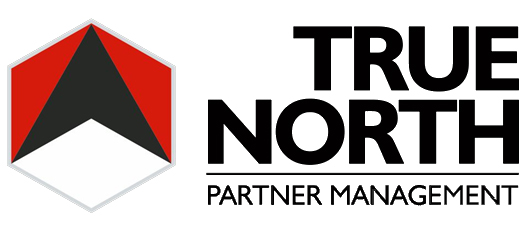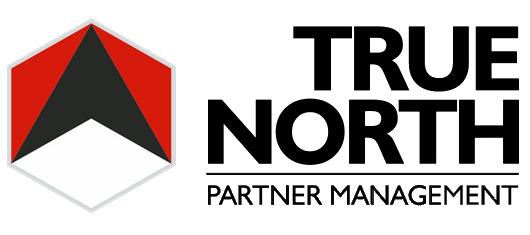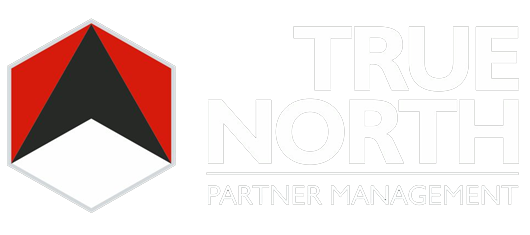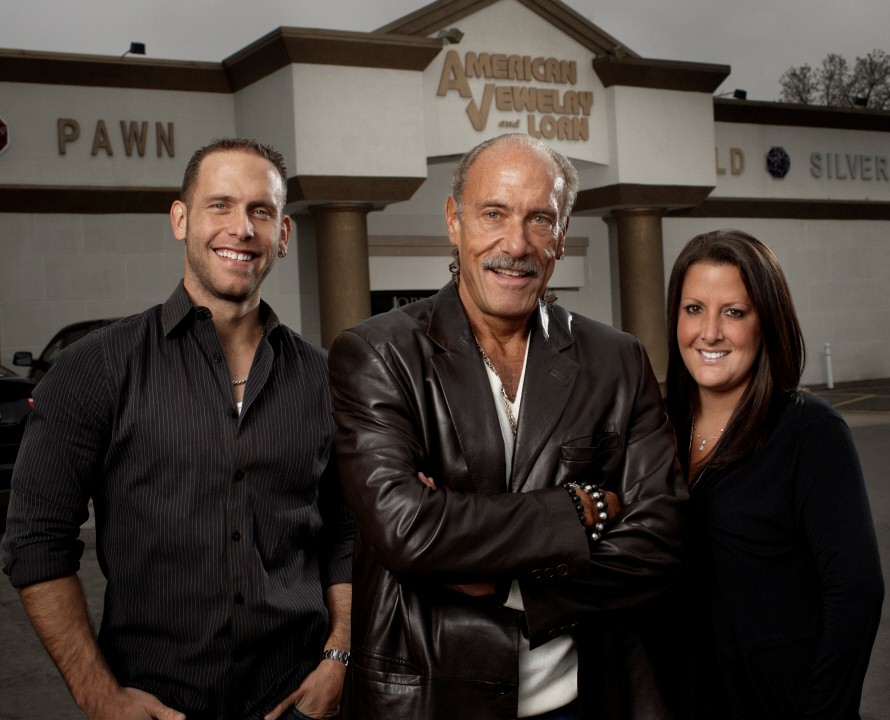The following post originally appeared on Forbes | December 22, 2014
Next to the speed of light, which Einstein tells us is the only absolute in the universe, second only to that, I rank money. Sol Nazerman – The Pawnbroker
The Pawnbroker is an adaptation from Edward Lewis Wallant’s novel of the same name. It surrounds (fictitious) German-Jewish University Professor Sol Nazerman who loses his family and his spirit to a German concentration camp. In his post-camp survival, along with working hard to avoid dealing with emotions, he moves to America, plants roots in a Bronx high rise, and sets up a pawn shop in East Harlem.
Though critically-acclaimed—the film masterfully dealt with deeply emotional and culturally and politically provocative themes—it portrayed the industry of pawning in the darker hue of desperate individuals with suspicious pasts being objectified and reduced to a dollar figure, perpetuating and possibly crystallizing some of the negative stereotypes that surrounded the profession.
Fast forward to today: With approximately 25% of the domestic population being “underbanked” and requiring at least one source of alternative financial service in a given year, pawnbroking is big business. On-the-ground negotiations, pricing against futures, lean interest rates, and a whole host of complexities that come with the human element of consumer-level exchange make this a competitive, and for those that thrive, lucrative industry.
Premiering their ninth season on December 29th, the runaway truTV series Hardcore Pawn and its cast—the Gold family of American Jewelry and Loan—are changing the longstanding industry perception by limelighting the profession, the stories behind the deals, and the business savvy needed to succeed in the field. Today I speak with Les, Ashley, and Seth Gold: Second and third generation pawnbrokers, truTV darlings, and, with their 50,000 sq. ft. shop and Seth’s title as 2013 National Pawnbroker of the Year, one of the most successful pawnbroking institutions in America. See our exchange below:
On Trendsetting And Clearing The Profession’s Name
Parnell (To Seth): I’ve noticed over the past handful of years that pawn shops have been springing up all over the place. No doubt that your show has played at least a major role in creating this trend. Can you talk to me about that?
Seth: Absolutely. People are jumping into the business. That’s what I think is so unique about our show. Maybe you’ve never been to a pawn shop, right? But you’re going to be interested in peaking in to see what it’s like. Maybe you’ve experience going to a pawn shop because you didn’t have money, so you can say, “Oh yeah, I relate to that.” Or perhaps you have a piece of merchandise that someone brought in, and you can say, “Oh, I have something like that. I wonder what it is worth.” Or maybe you’ve worked in a family business… I think that there are many levels that the show can attract viewers at.
Not only that, but prior to the show, I was a victim of [the negative pawn shop stereotype], too. Growing up, people wouldn’t just walk into pawn shops. Now I hear people say, “Hey, I just bought a snow blower and saved money because I went to a pawn shop.” Yeah, that’s cool.
On The Realities Of Running A Pawn shop
Parnell (To Seth): If we boil your business down, you’re lending money and buying and selling things. It sounds very simple. I think that, maybe, the average person says, “Shoot, that looks easy, why don’t we open a pawn shop.” Now, if it were really that easy, everyone would be doing it and knocking it out of the park. Talk to me about that. What are the realities of running a shop like this?
Seth: It’s not as easy as, “Hey, let’s open up a pawn shop.” There is so much that goes into the price. People know that pawn shops are popping up all over the place. So, where are you going to go? To the new guy who seems to know what he is doing? Or to the guy that has been established for a long period of time?
Perhaps most challenging is that there are regulations—federal and state—and a lot of people don’t know that. So we are restricted on the amount of money that we can charge per month in interest. That comes into play when you decide where you want to open. If you go to a state like Michigan, we are only a 3% per month state, which means that for every $100, you owe us $3 plus $1 for storage per month—so $4. This means small loans and small interest. We are the lowest in the country. And you need to be able to sustain a viable operation on 3%, which, a lot of people turn away from because they don’t really know how to do it. But ours is a volume-based game. If you go down South, the interest rate is a bit different. It is a lot easier to manage. However, there are a lot of pawn shops that are springing up, depending on where you are.
On Handling Emotions In Business
Parnell (To Les): I’ve seen you speak about emotion in the deal any number of times. This is, as I’m sure you know, a heck of a lot easier said than done—removing emotion from the deal. What is the internal dialogue that you have in order to do that? How are you removing the emotion?
Les: When people come to the window, they try to bring out all of the emotion when they pawn something, when they are selling something to me. It’s the right way to do it. You try to get the customer—who would be me in that case—or the customer that I am selling to, to fall in love. They either want to fall in love with you or fall in love with the product.
That’s on the one side when you are selling things. When you are buying things, what you need to do is to make sure that you don’t have that emotion inside of you. Look at it objectively. This is for people going to buy a car, jewelry, a house, it doesn’t matter what.
For example, when you walk into a house, and you say, “Oh my god, I have to have it!” The problem is with the purchaser, but not with the seller, because when people come in and they fall in love with their house, that’s the best thing to hear. Then they are emotionally involved and that is what you want. But keep the emotion out of it when you are purchasing something. When you are selling something, like I said, the key is having people get emotionally involved.
On Excelling In A Male-Dominated Industry
Parnell (to Ashley): You are excelling in what can be considered a predominantly male industry. Looking at the bigger picture, this is something that many successful professional women go through. Can you talk to me about that?
Ashley: Like you said, I do work in a male-dominant industry. When people come in here, they say, “We want to talk to your dad. We want to talk to your brother. We want to talk to the owner.” Well, I am the owner!
People also ask me, “Why are you so tough?” Well, I have thick skin. And you have to have thick skin in an industry like this. I have to be strong. And when I come off strong, people characterize me: “Oh my god, she’s so mean. She’s so tough. She’s so obnoxious.” Well, no, I am not.
People are used to seeing men in this industry. People don’t typically see females [working] in a pawn shop. I am trying to change it. I am trying to tell women, if they have a strong desire to do something in a male-dominated industry, go ahead and do it. Take a stand. Do what you want to do in life.
On Working With People
Parnell (To Seth): In watching the show, I can see that there are some “interesting,” or colorful characters. Some of them, perhaps, are short of social graces. It makes me think of that saying, “When you play in the mud, you’re going to get dirty.” It is that notion that being around a particular environment will influence you. What are your thoughts on that? Can you talk to me about your clientele?
Seth: I don’t look at it quite like that. I think that people are familiar with traditional forms of banking. However, approximately 25% of the US population is underbanked or has no bank account at all. We provide that service for people that don’t have traditional banks. I see it regularly that people will come in on the first of the month, and in the middle of the month, and pick up their merchandise and take it out. That repeat customer is what keeps the longevity of pawn shops. While they might not be like the average banking client in some ways, the majority is reliable.
Actually, let me flip it on you: Out of 10 people that get loans with me, how many do you think come back and get their merchandise?
Parnell: I am going to say very few—1 to 2 maybe? 10-20%.
Seth: 80-90% is the national average of people coming back to get their stuff! Basically, pawn shops provide non-recourse, collateral-based loans, and most people take advantage of that and get their merchandise back.
That’s the thing: I think that there is a lot of misrepresentation and a lot that is misunderstood in the pawn industry from people that have never experienced it before. People come in, there is no credit check, you come in with a piece of collateral, and it is your stuff, you have an emotional attachment to it. Most people who take out the loan option get it back because they do have an attachment to it.
On The Allure Of Pawnbroking
Parnell (To Ashley): You are a third generation pawnbroker. You certainly had a lot of exposure to it growing up. At the same time, you did go to college and had other options, professionally-speaking. What drew you into the family business?
Ashley: You never know what is going to come through that door! You never know! I’ve grown up in this industry my entire life. When people used to go out with their friends, I used to come to the pawn shop on Saturdays. I used to come to work for my dad at an early age. I wrote my first pawn ticket at the age of seven, and I used to say, “Oh my god, it is so cool because you never knew what was going to come through that door. Could it be a piece of jewelry? Or could it be a car? Or could it be a fur coat? Or could it be a game system? And I thought it was so cool.
I knew that I never wanted to go to work in a suit. And I knew that I never wanted to sit in an office all day. This is what I knew early on. I always thought that it was so cool because my dad would come home with the greatest stories. I knew that when I got older that I wanted to be able to come home and tell my own cool stories. I knew that I wanted to go to college and get a degree, but there was never a doubt in my mind that this is exactly what I wanted to do.
On The Generational Gap
Parnell (To Seth): What are the major differences, generationally-speaking, between you and your sister and your father, or maybe even your grandparents?
Seth: So, let’s talk about tech-savvy people. My dad isn’t the most tech-savvy person. He has a hard time even starting the computer sometimes. And using the phone? Don’t even talk to me about it. My dad would always go and shop the other stores—the Home Depots of the world—to do price analysis and price comparison to see how much he should be buying things for versus selling things for, and ultimately, loaning. Obviously, technology moves so fast that you don’t need to do that anymore.
My dad is still old-school: He’ll still go and do research at traditional department stores. Me, on the other hand, I have the internet at all times so that I can price compare. But that is what my customers are doing, too. So I need to be one step ahead at all times. What is the latest technology craze? Where is the loan balance going to go? Is it going to go in gold again? Is it going into silver? You need to adapt, and that is why pawnbrokers have been around for 3000 years—they can adapt.
On Pawn Ethics
Parnell (To Les): Can you talk to me about the pawn ethics that you mention in your book? What are they? Why are they important? What can we learn from them?
Les: Essentially, they are to make sure that you treat the customer with respect. When somebody comes in for a loan, they are not having the best day of their life. And you always understand that. We are there to help them with either cash or some type of deal to make life a little bit easier for them. We’ve always believed in the interest rate—we charge 3% a month, and a dollar a month storage—and we are here to find the sweet spot because what we want to do in the pawn industry is make sure that people pick up their merchandise.
If we end up with it, if we pay too much, people would have no reason to pick up their merchandise. If we pay too little, they won’t pawn it. So, what we’ve found is the sweet spot: The area of the cost of the item where people will pick up their merchandise and they will be happy with the amount that they get.
On Dealing With Criticism
Parnell (To Seth): Being in the public eye, you are exposed to quite a bit of criticism. How do you handle it?
Seth: Yeah, so, there’s no book for this. I wish I could find one. The day the show first aired, the producer came to me and said two things: “Number one, your life is going to change. And number two, don’t read anything on the internet.”
Parnell: (Laughing) It’s probably good advice.
Seth: No, it’s not; it’s the best advice. But I am human, right? And I am just a pawnbroker, too. I’d be lying if I said that I didn’t read it, and it doesn’t affect me. But you have to take it in stride because not everyone is going to love you all the time. And, obviously, if people are talking about you, then there is something to it, too. At least you are being talked about!
It is tough, and there is no book on how to handle it, but if you have a strong foundation… I’ll go back to this: Me, my sister, and my dad all went into this after we decided to do the show. We said to each other that we might bicker during work because that is what happens, but at the end of the day, we all kiss each other goodbye and we are family. I think that all three of us have this unique experience that not many people get to have in their lives, and we are all going through it in our own different ways. We are there to support each other.
On Hardcore Pawn Being Scripted
Parnell (To Les): What do you say to the people who say that the show is scripted?
Les: The show is not scripted. When they see people coming in, they are seeing desperation. They are seeing how people act and react when we can’t give them what they want. They are seeing reality. We are a non-scripted show. I put on my white sweater. I put on a microphone under my sweater. We open up the doors. And what you see is what you get.
Parnell: I think that maybe viewers fail to realize that the outside world knows there are cameras there. It is the potential for someone else’s fifteen minutes of fame. When you add that into the mix of desperation and emotion, you get some interesting characters.
Les: Sure. They don’t care how they look on TV. They see the cameras. The cameras aren’t hiding. And everyone you see has signed off. It is what it is. Like I said earlier, it is a heck of a ride, and as long as we’re riding it, we are doing it!
On Attorneys
Parnell (To Seth): Much of my readership is composed of attorneys. What is your experience with attorneys? Can you talk to me about that?
Seth: As I mentioned, we are highly-regulated by the state. So, there are often times when new legislation gets passed and I have some very highly-qualified attorneys that work on my behalf to address the legislation. I also have attorneys for things like trademark issues that I’ve had in the past. We also often run into other business practice questions, and loan questions, and things like that. So we deal with attorneys often enough.
The name, in particular: With the success of the name, people want to use that. There have been times where things have come into question with the use of our name. The thing that I never realized is that each one of us is a brand, too. My personal brand—people have tried to use that for their personal gain.
I’ve never had an entertainment lawyer before, but now I have one. I have an IP and trademark guy. So, you have to be forward thinking. One of my closest confidantes, a member of the national pawnbroker’s associations, is a practicing attorney who teaches law and guides me on how to handle regulations.
Parnell: Are there particular attributes that you enjoy or appreciate about the good attorneys that you’ve worked with?
Seth: Yes! They need to be a bulldog! So, here is the truth: Not every case you go into, you’re going to win. As long as the attorney is up front and explains to me what the probable outcome will be and gives me the worst news, first. I want the bad news first. We can deal with it and then we can use the good news to green it up.
When I am looking for an attorney, I am looking for a guy or girl that is not afraid and won’t back down, and is a lot smarter than me. And, ultimately, someone that you trust to run with your name.
Email: dparnell@davidjparnell.com Twitter: @davidjparnell
Books: The Failing Law Firm: Symptoms And Remedies; In-House: A Lawyer’s Guide To Getting A Corporate Legal Position



